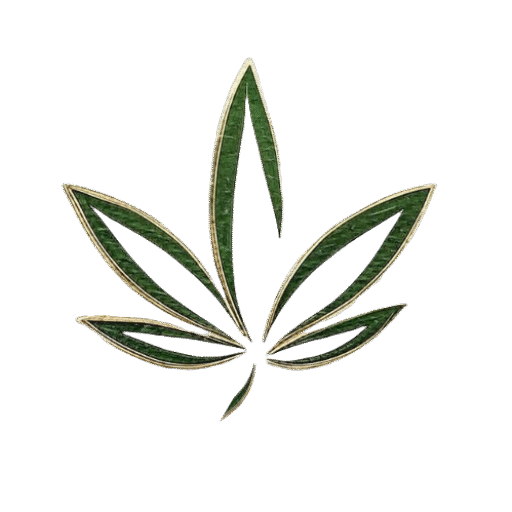How medical cannabis prescriptions work under UK law.
An Introduction to Medical Cannabis in the UK
To be made clear right away, non-prescribed cannabis is illegal in the UK. Possession can carry up to 5 years in prison and an unlimited fine, while supply and distribution can carry up to 14 years in prison and an unlimited fine.
Since a change in the law in 2018, it has been legal for specialist doctors in the United Kingdom to prescribe cannabis-based products for medicinal use. This area of medicine is complex and subject to strict regulations. This guide is designed to provide a clear, factual overview of the current system, explaining what medical cannabis is, the legal framework it operates within, and the pathways through which it can be prescribed.
It is intended for informational purposes only and does not constitute medical advice or an endorsement of any treatment. Neither this website nor this guide condones or promotes the use of cannabis, whether legally or illegally. It is strictly for informational purposes. If authorities determine that this website does not meet this criteria, it will be disabled and amended to be compliant with UK law before being made active again.
What is Medical Cannabis? (Defining CBMPs)
When referring to “medical cannabis” in the UK, the correct term is a Cannabis-Based Product for Medicinal use, or CBMP. These are not the same as cannabis sold illicitly. For a product to be considered a CBMP, it must meet three specific criteria:
- It must be a product that is, or contains, cannabis, cannabis resin, cannabinol, or a cannabinol derivative.
- It is produced for medicinal use in humans.
- It is regulated as a medicinal product or an ingredient in a medicinal product.
CBMPs are prescribed by specialist doctors and can come in various forms, such as oils, capsules, or flower preparations. They contain specific, controlled concentrations of active compounds known as cannabinoids, primarily THC (Tetrahydrocannabinol) and CBD (Cannabidiol).
A Brief History: The 2018 Law Change
On 1 November 2018, the UK government rescheduled cannabis, moving it from Schedule 1 to Schedule 2 of the Misuse of Drugs Regulations 2001. A Schedule 1 substance is defined as having no therapeutic value, while a Schedule 2 substance is one that has a recognised medical use and can be legally prescribed.
This significant change was prompted by several high-profile cases of children with severe epilepsy who were reported to benefit from cannabis-based medicines. The rescheduling of cannabis acknowledged its potential therapeutic value and created a legal framework for patients to access these treatments under specific circumstances. However, it did not legalise cannabis for recreational use.
Medical vs. Recreational vs. High-Street CBD
It is essential to distinguish between the three different types of cannabis products available in the UK:
- High-Street CBD: These are products, such as oils and edibles, that are sold legally in shops and online as food supplements or cosmetics. For a CBD product to be sold legally in the UK, it must contain no more than a trace amount of THC (less than 1mg per container) and cannot make any medical claims. These products are not considered to be medicines.
- Medical Cannabis (CBMPs): These are medicines prescribed by a doctor on the General Medical Council‘s Specialist Register. They can contain a full spectrum of cannabinoids, including THC, at controlled and specified levels. They are subject to the same legal controls as other Schedule 2 drugs.
- Recreational Cannabis: This is the illicit substance sold on the black market. It remains a Class B drug, and it is illegal to possess, grow, distribute, or sell it. The contents and strength of recreational cannabis are unknown and unregulated.
The Two Pathways: NHS vs. Private Clinics
There are two distinct pathways through which a patient might be prescribed a CBMP in the UK:
- The National Health Service (NHS): An NHS prescription for a CBMP is possible but remains uncommon. The National Institute for Health and Care Excellence (NICE) has issued very specific guidelines, and currently, NHS prescriptions are generally limited to patients with a small number of conditions. These include rare, severe forms of epilepsy, chemotherapy-induced nausea and vomiting, and muscle spasticity in Multiple Sclerosis (MS), and only after other licensed treatments have been tried and proven ineffective.
- Private Clinics: The majority of CBMP prescriptions in the UK are issued through private clinics that specialise in this area of medicine. Doctors at these clinics must also be on the GMC’s Specialist Register. They have the clinical discretion to prescribe CBMPs for a wider range of conditions if they believe there is sufficient evidence that a patient could benefit and that other treatments have failed. Patients who receive a prescription through this route are required to fund the cost of their consultation and the medicine themselves.
Important Note on Driving Laws
Receiving a prescription for medical cannabis does not exempt a patient from UK drug driving laws. It is illegal to drive if you are impaired by any substance, including prescribed medication. However, there are specific legal defences for patients who are taking their medicine as directed by a healthcare professional and are not impaired. For detailed official information, please consult the UK government’s guidance on drug driving.
